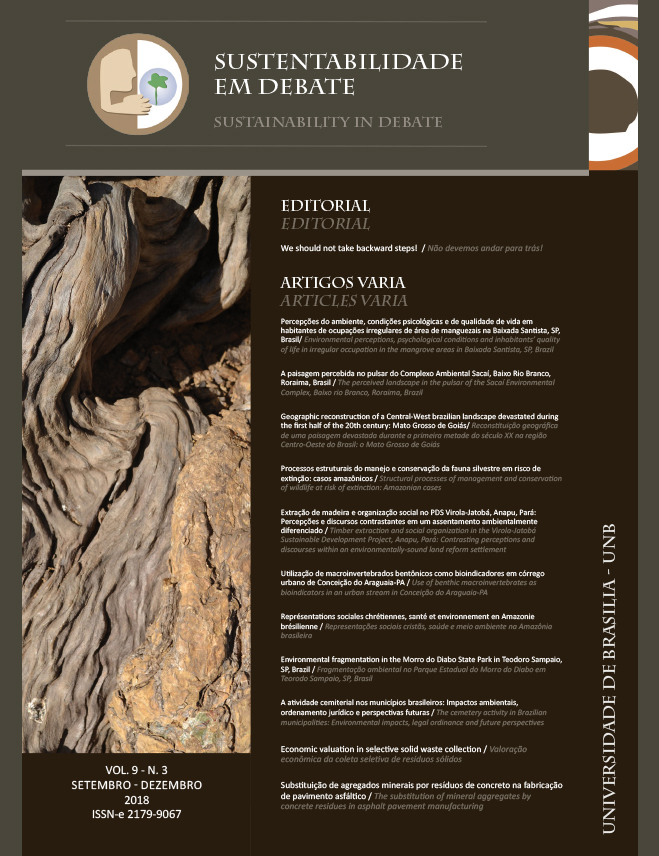Economic valuation in selective solid waste collection
DOI:
https://doi.org/10.18472/SustDeb.v9n3.2018.18200Keywords:
Solid Waste Management; Selective collection; Contingent Valuation Method; Willingness to Pay;Abstract
This article aims to estimate the economic valuation of selective solid waste collection in the city of Juazeiro do Norte, Ceará, Northeast of Brazil, through the Contingent Valuation Method, presenting the average Willingness to Pay (WTP) of the respondents. Besides, it identifies the variables that influence WTP. The study involved bibliographical research and fieldwork, with 360 interviews, qualitative data analysis and statistical analysis of variables, through binary regression, using a probit model (probability unit), using STATA 11. It was found that 91.94% of the respondents recognize that selective collection contributes to the reduction of pollution, but only 37.50% would be willing to pay for the referred collection. Concerning the respondents with positive WTP, the average monthly WTP found was R$ 15.70. The higher or lower willingness to pay for the referred services was related to the variables gender, income and education. Based on the marginal effect, the variables with greater influence on WTP for selective collection in this study were gender (17.44%) and education (16.86%).
Downloads
Downloads
Published
How to Cite
Issue
Section
License
SUSTAINABILITY IN DEBATE – Copyright Statement
The submission of original scientific work(s) by the authors, as the copyright holders of the text(s) sent to the journal, under the terms of Law 9.610/98, implies in the concession of copyrights of printed and/or digital publication to the Sustainability in Debate Journal of the article(s) approved for publication purposes, in a single issue of the journal. Furthermore, approved scientific work(s) will be released without any charge, or any kind of copyright reimbursement, through the journal’s website, for reading, printing and/or downloading of the text file, from the date of acceptance for publication purposes. Therefore, the authors, when submitting the article (s) to the journal, and gratuitous assignment of copyrights related to the submitted scientific work, are fully aware that they will not be remunerated for the publication of the article(s) in the journal.
The Sustainability in Debate Journal is licensed under Creative Commons License – Non-Commercial-No-Derivation Attribution (Derivative Work Ban) 3.0 Brazil, aiming at dissemination of scientific knowledge, as indicated on the journal's website, which allows the text to be shared, and be recognized in regards to its authorship and original publication in this journal.
Authors are allowed to sign additional contracts separately, for non-exclusive distribution of the works published in the Sustainability in Debate Journal (for example, in a book chapter), provided that it is expressed the texts were originally published in this journal. Authors are allowed and encouraged to publish and distribute their text online, following publication in Sustainability in Debate (e.g. in institutional repositories or their personal pages). The authors expressly agree to the terms of this Copyright Statement, which will be applied following the submission and publishing by this journal.





